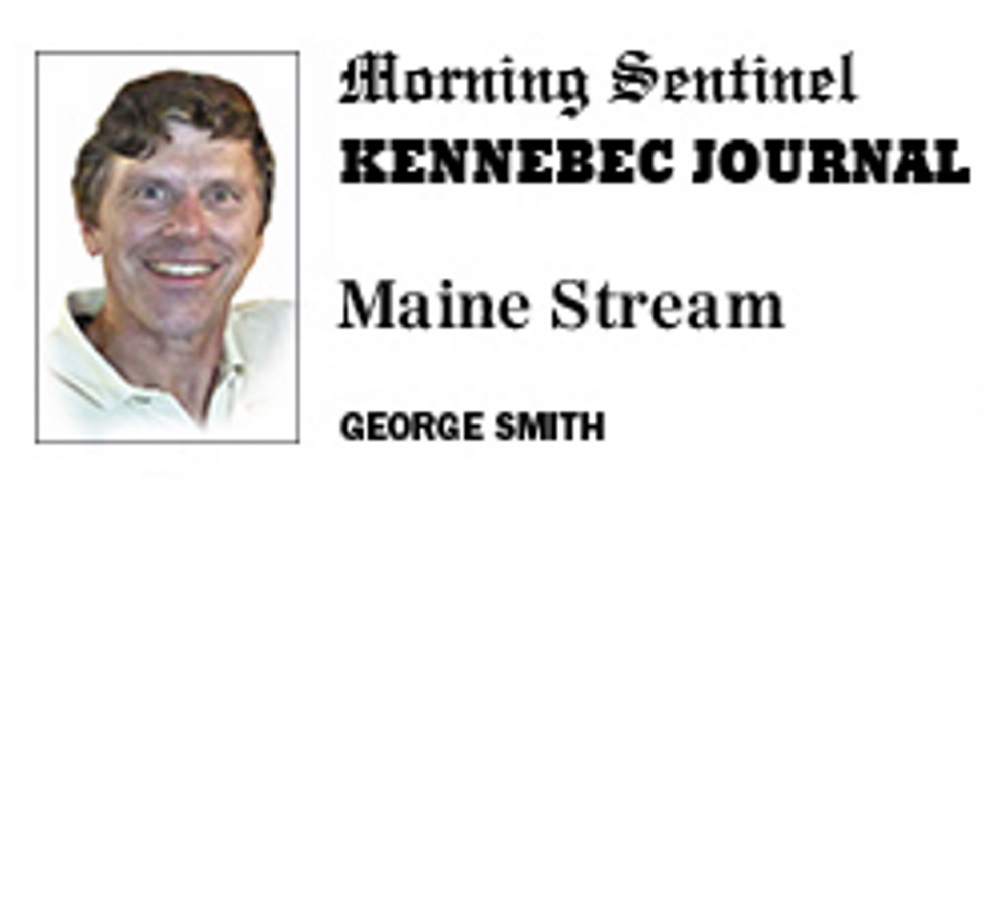It was an excellent question, posed by the Legislature’s Appropriations Committee: How would you spend new revenue to benefit Maine’s fish and wildlife?
We’ve been trying to win public support and tax funding for the Department of Inland Fisheries and Wildlife for so long without any success that I’m not getting my hopes up. But here’s my wish list.
Moose research: Last year, briefing legislators on moose issues, the agency’s moose biologist, Lee Kantar, said, “The big unknown is mortality and the causes of mortality. So we have to be cautious in the number of permits we issue.” We are unable to maximize moose permits and give our hunting industry a needed boost, because of what we don’t know about moose mortality. Three weeks ago, the department’s deputy commissioner, Andrea Erskine, told the Inland Fisheries and Wildlife Committee that her agency hoped to expand their moose mortality research to a second study area. But it’s not in the budget.
Marketing: IF&W eliminated its marketing position and budget many years ago. We desperately need to begin marketing hunting and fishing again, to grow the agency’s customer base and boost our ailing outdoor industry.
Landowner relations: Nothing is more important for all of us who recreate on private land — and that really is all of us — than good landowner relations. Groups representing sportsmen and private landowners have worked, largely unsuccessfully, for more than 10 years to establish a vigorous landowner relations program at a state agency. We need that!
Licensing: Sportsmen’s fees are high because we are paying for services that the general public gets for free. I would initiate a range of special deals to encourage participation in hunting and fishing, and to entice nonresidents in our direction. For example, it would be a huge boost to Maine guides if IF&W charged no fees to customers who hunt or fish with a Maine guide.
Turkey hunting: Maine has lost about one third of its turkey hunters over the last nine years, even as the population of turkeys has expanded statewide. Over the years, I asked a lot of hunters why they don’t hunt turkeys and almost always the answer was that it’s too expensive. We should eliminate the turkey hunting fee.
Fisheries: I could write a book about the deficiencies in our fisheries research and management programs. Start with hatcheries, where a commission recommended — 10 years ago — a substantial increase in the number of stocked fish and the construction of a state-of-the-art hatchery, recommendations that have been impossible to implement due to lack of funds.
Move on to native brook trout. We have 97 percent of all that are left in this country, and it is a resource that we are obligated to protect and enhance. But there are actually many remote ponds holding native brookies that IF&W’s biologists have never been able to survey. There is so much we don’t know! And the agency’s fisheries data is appallingly poor and riddled with errors. We need significant reorganization, and additional staff, to boost our fisheries program and management.
Water access: Mainers have no right of access to moving water — our brooks, streams, and rivers. If a landowner owns both sides of a brook, for example, and posts that land, we can’t even stand in the water — or anchor our canoe or boat — and fish. We don’t even have public access sites on most of our lakes and ponds. IF&W’s budget for water access purchases and improvements is very limited. This could stand some improvement.
Wildlife habitat: IF&W depends on other programs to purchase critical wildlife habitat, and could do a lot more to be proactive in identifying existing habitat that needs protection. Maine tends to protect lands that are offered up by landowners, rather than going out and identifying the habitat that is most important to purchase or protect.
Deer: In every deer plan for the last 30 years, lack of wintering habitat was cited as the most important issue. But we have done very little to address that critical problem, now cited as the principle reason we lost our deer herd in the North Woods. In 2011, Gerry Lavigne, IF&W’s long-serving deer biologist who was retired and issued his report on behalf of the Sportsman’s Alliance of Maine, noted, “DIFW should identify additional sources of funding, and/or curtail less urgent programs to focus on deer recovery work. Likewise, personnel need to be added where needed to implement new and ongoing deer recovery work. Some of this additional staffing may be accomplished through re-assignment of personnel from less urgent programs.”
We’re still waiting and hoping this could be accomplished.
Public information and education: This division at IF&W has diminished over time to the point that the public receives almost no information and very little education on fisheries and wildlife issues and programs. It is very difficult to find things on the agency’s website, and a lot of important information is not even on the website.
How’s this for a wish list?
George Smith is a writer and TV talk show host. He can be reached at 34 Blake Hill Road, Mount Vernon 04352, or georgesmithmaine@gmail.com. Read more of Smith’s writings at www.georgesmithmaine.com.
Send questions/comments to the editors.



Success. Please wait for the page to reload. If the page does not reload within 5 seconds, please refresh the page.
Enter your email and password to access comments.
Hi, to comment on stories you must . This profile is in addition to your subscription and website login.
Already have a commenting profile? .
Invalid username/password.
Please check your email to confirm and complete your registration.
Only subscribers are eligible to post comments. Please subscribe or login first for digital access. Here’s why.
Use the form below to reset your password. When you've submitted your account email, we will send an email with a reset code.